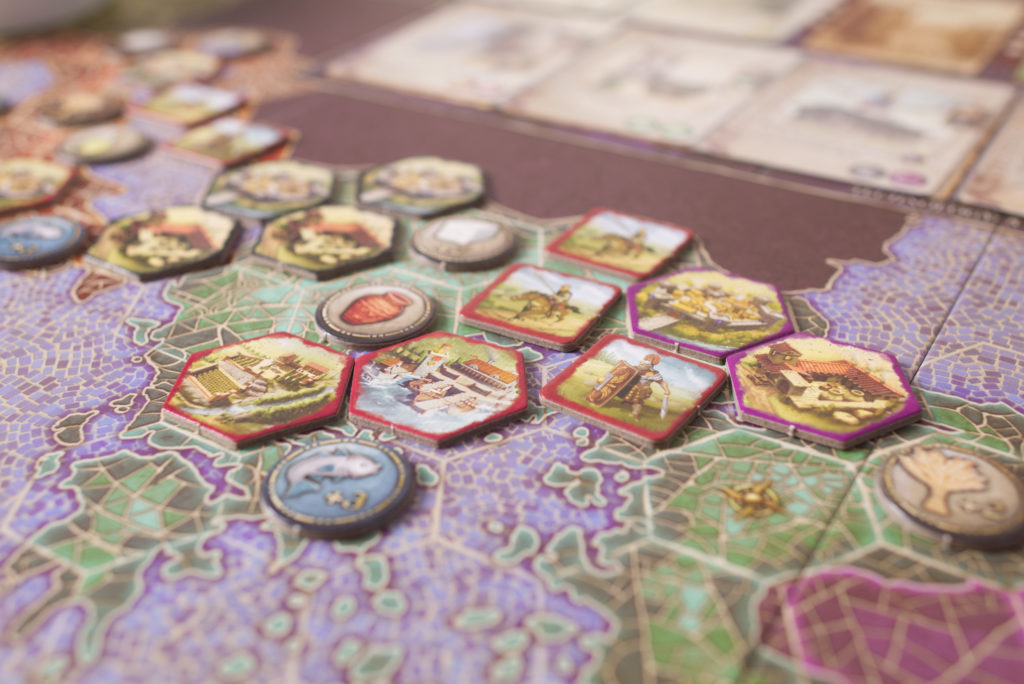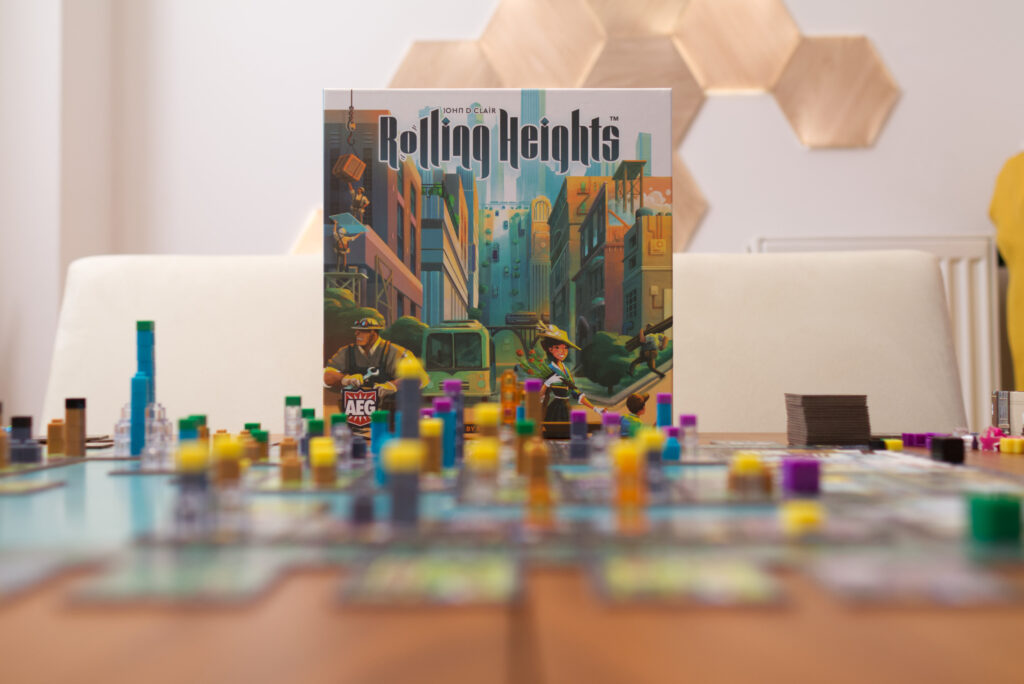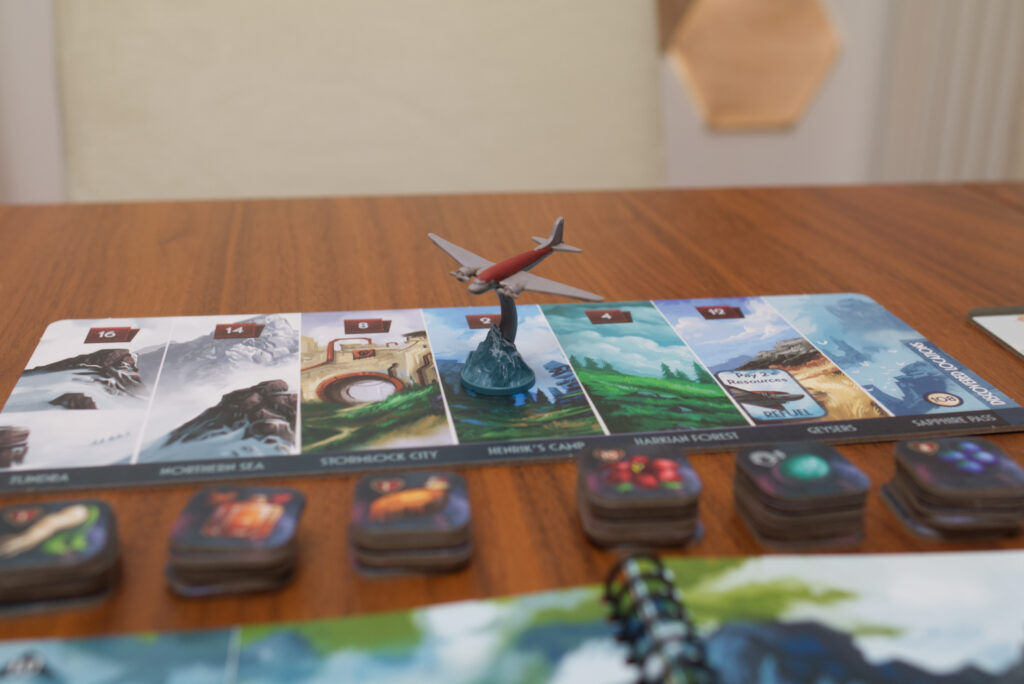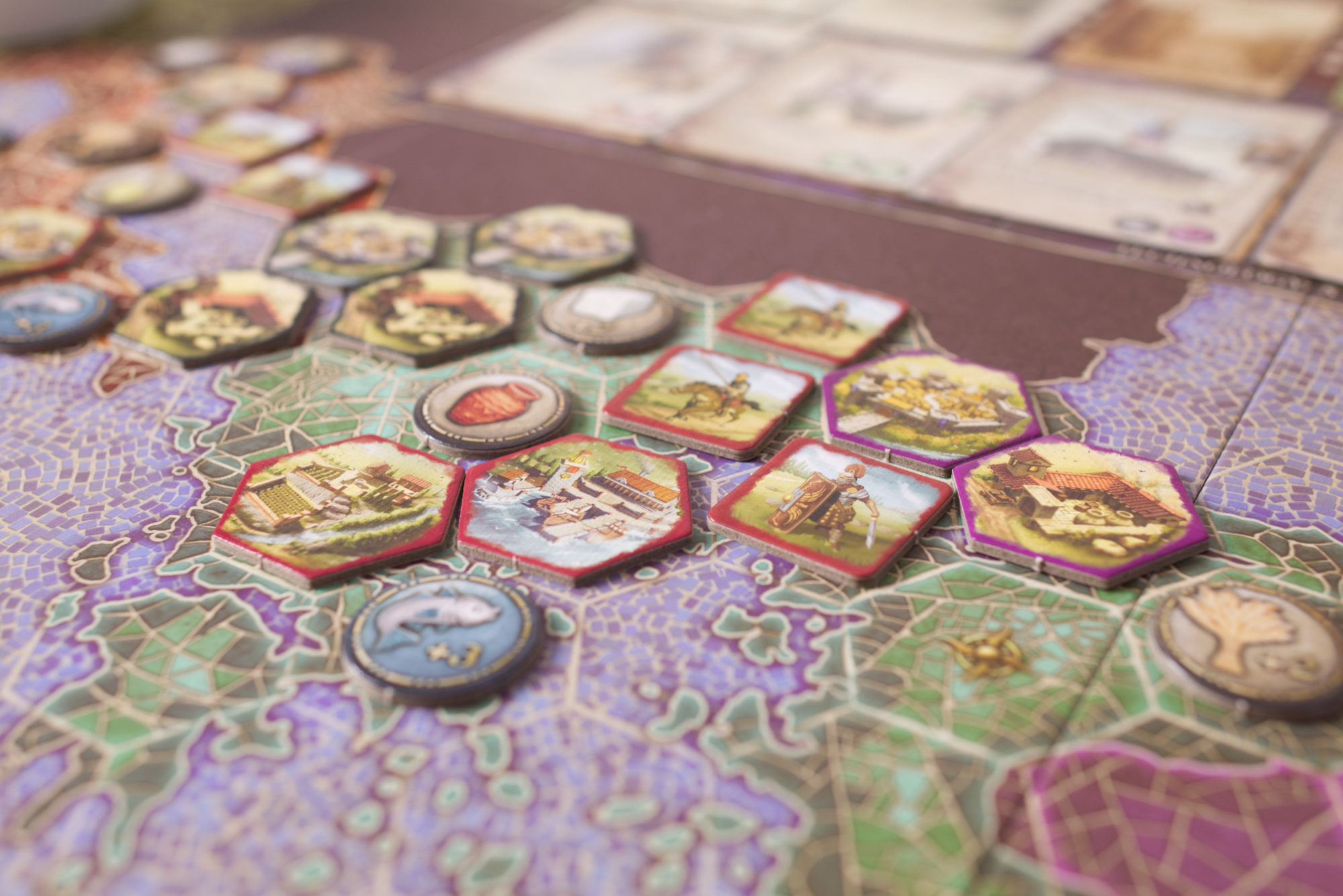Hi everyone!
Hope you’re having a lovely weekend! I’m not sure where I heard it first, but someone once said that in the first two weeks after releasing an anticipated game, it gets played more often than during all of the months and years of playtesting combined. It’s shocking to hear at first but makes a lot of sense when you think about it.
Maybe that’s one of the reasons why I sometimes play games and immediately wonder how a designer could have overlooked something that to me is quite obvious. Every player brings a different perspective and different taste to the equation, so maybe I like different things than the designer. Or there was a bias of being used to how a game played during development and nobody gave that particular feedback I would have loved to give. Whatever it is, with the games I’m reviewing, I quite often get that sense of there being something cool in a design but it not always being executed to its maximum potential. Which brings me to the topic of this post: patching games.

Patching software is quite normal: you release something, a customer discovers a bug or performance issue, and if it’s serious enough and you have money to spend on more development, you issue a bug fix. Unfortunately with board games, which is already an industry where few make any money and a lot do designing as passion projects, updating an existing game often doesn’t make any economical sense. It’s much more profitable to work on a new game than fixing an existing one or releasing an expansion.
I just finished writing my review of Redwood and one thing I noticed is that I really liked the aspect of other players screwing up my perfect shot. So I created a variant that introduces NPCs so the board gets more busy when playing solo or two player (Alternate Solo Mode: Crowded Park) and I think it elevates the gaming experience by a lot. There also seem to be lots of opportunities to design fun variants, as shown by the Bird of Prey promo which requires just two small new card board pieces.

Similarly, I adore Horseless Carriage (review) but it’s tricky for me to find two other players that want to play it as much as I do. So I created an automa to open up the game to one or two player situations and that really helped me give this brilliant game more table time.

What I particularly like about these kind of modifications is that they take an existing game and try to elevate it. Another example is Brett’s variant for Rolling Heights that addresses my main critique of the game overstaying its welcome by half an hour. So he created a variant that kicks players off with an additional building and worker: Construction Boom (lightspeed) variant for Rolling Heights. Thematic, elegant, no new components needed.

Ryan Laukat is particularly good at patching games. For example, both for Now or Never and Sleeping Gods: Distant Skies, he quickly after release issued official variants to address concerns some players had. For the latter, he added a “Veteran mode” that ramps up the difficulty and changes a few aspects to be more like what players of the original Sleeping Gods were used to. Both game designs were fine as is, but he elevated them by giving the option to adjust them towards different play styles and liking.

Patching games is an interesting challenge as a casual designer as well: there are design constraints you have to work with. You already have the theme, the components and rules are in place, how do you tweak a design with minimal changes to make it more towards what you think it needs? For me, this goes beyond simple house rules but analysing what makes a game great, where it might have its weakness, and making a game more of what it is.
Here is a small list of games I would love someone to pick up the challenge for. To stress it: I don’t think those games are broken designs and I don’t want to discredit the original designer’s work. I just think they have potential and someone in the community could elevate them, inject them with new life.
– Mosaic: A Story of Civilization: I liked the idea of Mosaic a lot but both the game arc / timing as well as the usage of the map and spatialness seemed off to me. The map in many aspects just acted as a collection of buckets for counting dominance with little spatial relation to objects. I saw attempts to reduce the number of cards in the decks to force earlier scoring triggers, but no concise variant that addressed all the issues I personally had with the game.
– Encyclopedia: For my taste, it would need a completely different way the dice are used to make the decision which dice to take when way more important. Probably the scoring also needs to be tweaked. But the components and cards look so lovely, I think it could be turned into a great game.
– Oros: This has such a cool premise, but the pacing and ability tech tree just didn’t quite click plus the automa that has to be used for lower player counts didn’t do it for me. Again, great components, I think with a different set of abilities and slight rules modification, this could be an amazing game.
– Autobahn: Oh man, I loved so many aspects of this game, but every time I played it the third act left us disappointed. In the early phase of the game, there are moves where the precise order and timing matter so much, these were my favourite parts of the game.
– Lisboa: I know, I know, it almost amounts to blasphemy to include one of Vital’s games in this list. But there was something off-putting for me with the way the ships were implemented that ultimately let me to sell my copy. I don’t remember the details, but I continue to think about Lisboa from time to time since there were so many fascinating aspects in this game. And so I just wish there was something that would tweak the game a little bit more towards my taste, that’s all. Interestingly enough, the other concern I had with Lisboa was actually addressed with the official Queen Variant.
Over to you: What’s a game you would love someone to patch? Something where you liked the core mechanisms, setting and components, but for some reason it unfortunately just didn’t click with you? Or what are examples of variants you tried that really elevated a game for you? I don’t mean expansions like Terraforming Mars’ Prelude expansion, but things that would fit in a PDF or BGG post. Love to read your thoughts!
